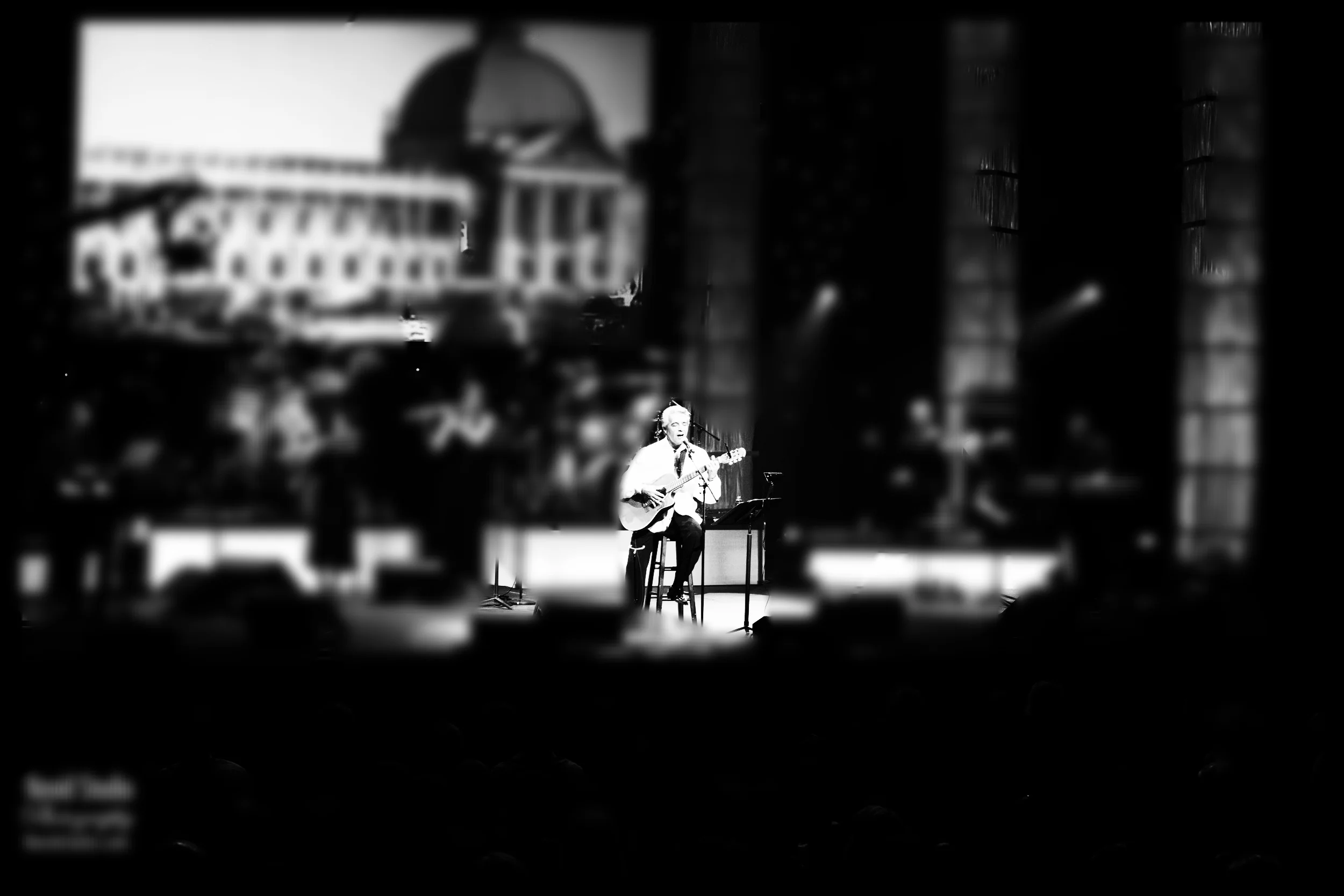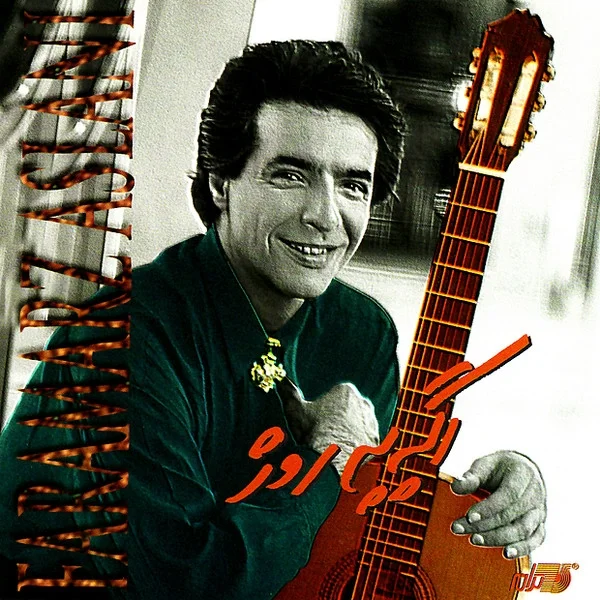

ON THE ROAD
BIO
Faramarz Aslani is a legendary Iranian-American Artist. His satin voice and charming character have made him a singer of the ages. He's also songwriter, guitarist, producer and an active philanthropist. He released his first album, "Delmashghooliha" (Occupation of the Heart), with CBS Records in Iran in 1977. He was later spotted by the director of the newly established CBS Records in Iran at a famous Iranian opera singer's gathering and was asked to sing a couple of his own compositions.
When "Delmashghooliha" was released in 1977, it contained ten songs. Faramarz had to convince CBS producers to allow a departure of the popular song production methodology of the time (i.e. large orchestral arrangements) and allow him to produce the album, using simple guitars and percussions. His producer, master pianist and musician, "Marcel Stepanian," suggested that the great "Armik," was the only person who could truly capture the essence of Faramarz's vision. The result was one of the most celebrated and evergreen albums in Iranian pop music history: a pure and raw album arranged solely with guitars, bass, percussions and? Lute, with undeniable undertones of Latin rhythm. Over the years, this album has proven to be a timeless classic, having given birth to a completely new style of Iranian pop music, and is considered not only a milestone in Faramarz career but in the entire genre.
Shortly after that, he was asked by CBS to help them with their A&R department. A job that he held until CBS's departure from Iran, in 1978. His first concert was at the Iran-America Society's auditorium, where he performed and was accompanied by a well-known guitarist, Armik, who had also arranged Faramarz's first album.
It was at this point Faramarz started touring in Tehran with eleven consecutive nights; holding solo performances that became an overnight sensation, attracting young audiences throughout the city, and creating an instant following, some of which attended all eleven performances. Only a few weeks later, he appeared on national television on the popular late-night variety show, the "Gharib Afshar Show." The very next day Faramarz tasted fame, being recognized and approached by adoring fans, on the streets of Tehran. During those early days, he began making the late-night show circuit, appearing on "Fereydoon Farokhzad's" multicolour show, "The Silver Carnation."
Unfortunately, the Iranian Revolution, and the ban that the new regime had put on music and musicians, forced Faramarz to leave the country, in 1979, but before CBS closed shop, he released a second album; "Hafez, A Memorandum", which was perhaps one of the last albums to reach the general market before the new regulations stopped all musical undertakings. HAFEZ A MEMORANDUM Faramarz and his family (i.e. his first wife, Marilyn, and two daughters, Phaedra and Roxana) moved back to England, where he had obtained a bachelor degree in Journalism, during his first visit there as a young man in the mid-seventies. Upon returning home, he had worked at Tehran Journal, one of the two English language dailies which were published in Iran, until he signed a contract with CBS. Later he resigned from that position, devoting his time to his music. Back in London, during those early days, he worked both as a journalist and a musician. As the number of Iranians who had? Led the country grew, he was able to travel throughout Europe regularly and have concerts in Germany, France and the Scandinavian countries, where the majority of the Iranians had made their second homes.
In 1992, Faramarz was invited by a Los Angeles based promoter to perform at LA's Shrine Auditorium, where he was received by an eager audience. On this visit he toured a few cities in the U.S., namely San Fransisco, Dallas, Huston, Boston and New York, before returning to England. He returned to the U.S. again the following year and performed at The Hollywood Palladium before touring other U.S. cities. While in the States, he had met and worked with many great musicians such as the late master pianist and musical director, Andranik, guitar virtuoso, Ardeshir Farah, the great drummer, Robert Noghli, South American guitarist, Ramon Stagnaro, and a multitude of others. During the '80s and '90s, Los Angeles became the city, where the majority of the Iranian diaspora resided; therefore, it also became the centre for Iranian music production. It was then that the seeds of migrating to the States were planted in Faramarz; resulting in the man and his guitar relocating to Los Angeles. Although his albums are few and far in between, each has served as an inspiration to the young and old, the amateur and professional alike. What makes Faramarz Aslani unique, is the fact that apart from a handful of poems by contemporary poets and a few classical bards, like in "Hafez, A memorandum"; in which he wrote music on eight sonnets of Hafez (one of a handful of Iran's most famous classical poets), all other lyrics are his own, vocalized with heartfelt passion, interwoven with his own music.
Faramarz has spent much of his career, time and energy on Philanthropic missions he believes in, and has been an active force for many non-profits worldwide. Mahak Foundation, Children of Persia, Children's Hope International, Makan Foundation, Neekoo Philanthropic Society, Omid Foundation Ayeneh, Jasmine Fire & Safety Foundation, St. Judes Hospital, SPCA, Farhang Foundation, UNICEF, Society of Iranian American Health Professionals (SIAHP) are some of the foundations that Farmarz has worked with.
New Single
-
Faramarz Aslani

Age ye Rooz
-
Faramarz Aslani
-
Faramarz Aslani
-
Faramarz Aslani
-
Faramarz Aslani
-
Faramarz Aslani

